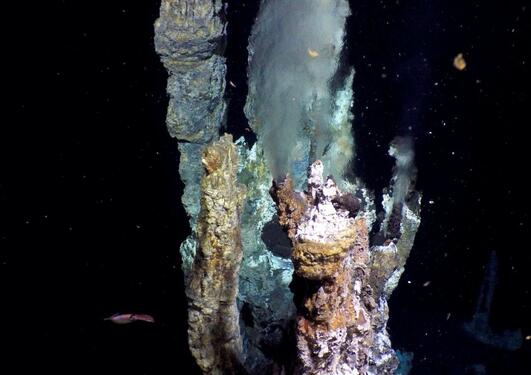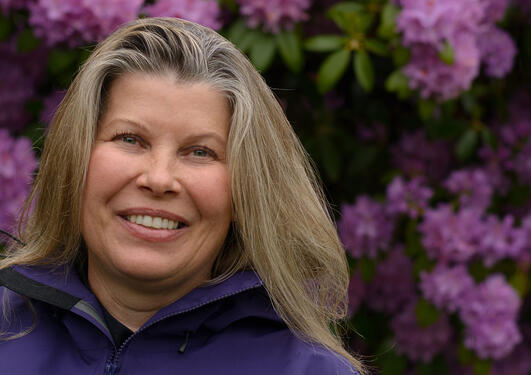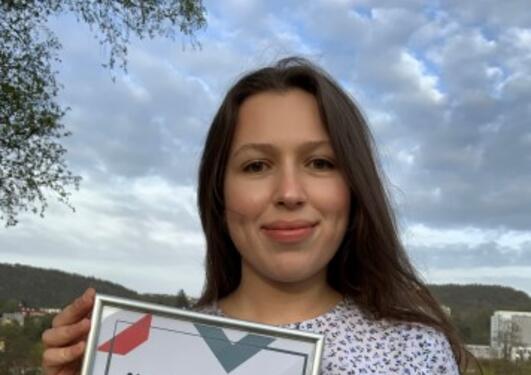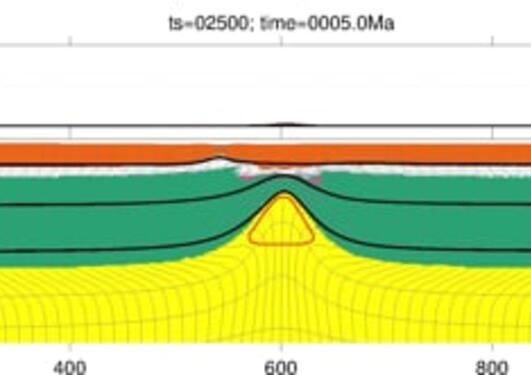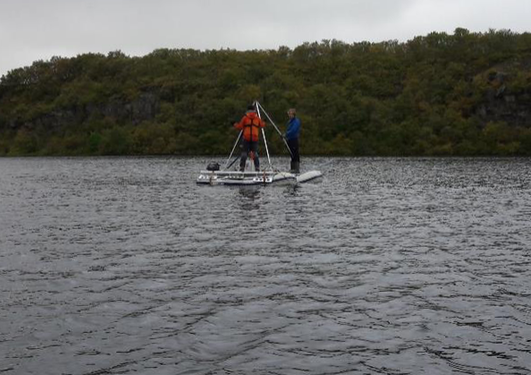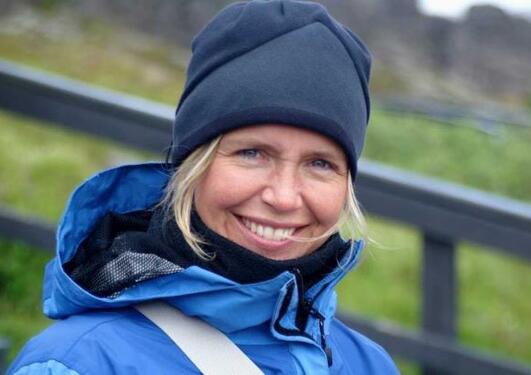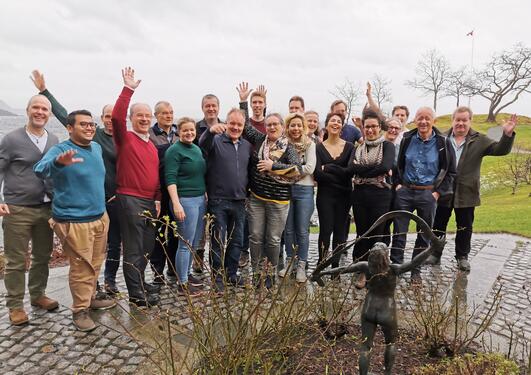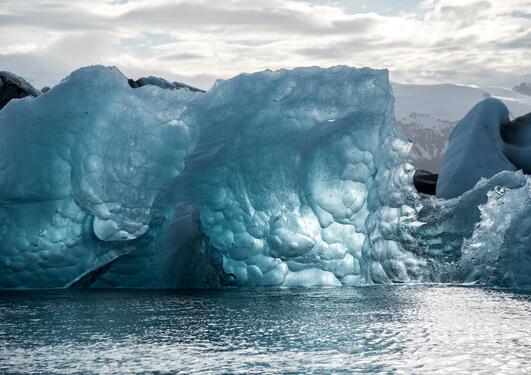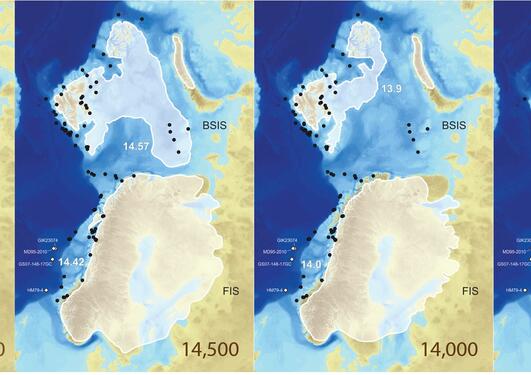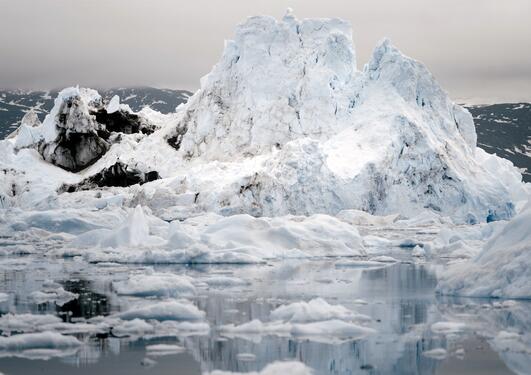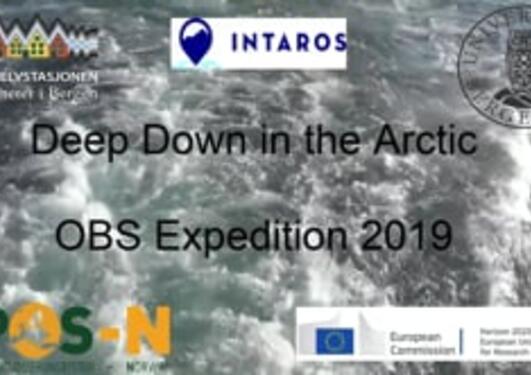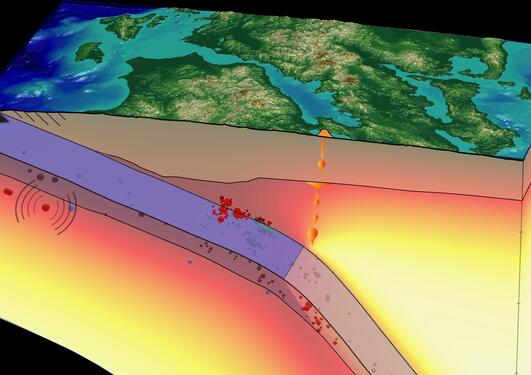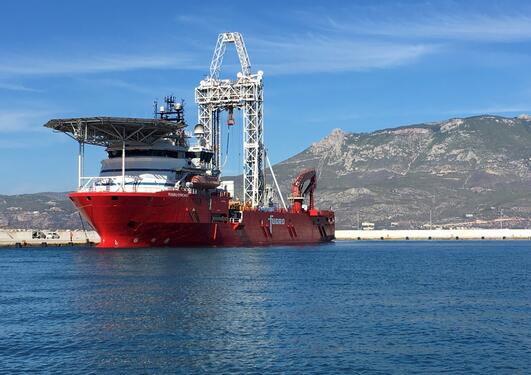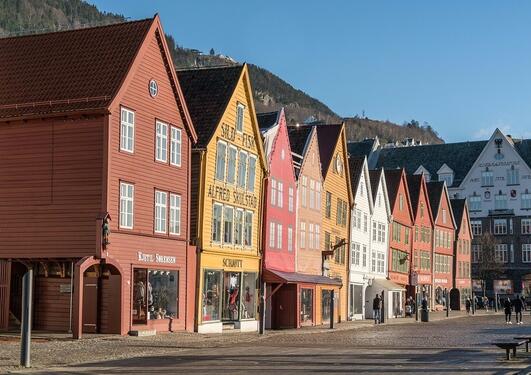News archive for Department of Earth Science
Two PhD students from the Center for Deep Sea Research have written an article for Aftenposten on the search for the origins of life.
Kikki Kleiven follows Tore Furevik as the direcor of Bjernes Centre, and will lead 200 climate researchers the coming four years.
Alma Dzozlic Bradaric completed her master's degree at GEO in 2020. Now she has received the first prize: Earth Model Award Winner from Halliburton for her brilliantly executed master's project.
The effect of increased mantle temperature at wide volcanic margins is likely overestimated. Large volumes of magmatism at volcanic rifted margin can be explained by depth-dependent extension and very moderate excess mantle potential temperature.
Mighty floods have carved out deep canyons on Earth. New research suggests this may have required less power than previously thought. Collecting such data, however, may be demanding.
The UN Ocean Science Decade gets off to a flying start through the University of Bergen’s new interdisciplinary SEAS Fellowship Programme.
For the next 5 years, UiB will be training a new generation of marine research leaders and decision makers to ensure sustainable oceans.
Modeling and inversion of seismic data using multiple scattering, renormalization and homotopy methods.
Temperature in the Southern Ocean was more tightly linked to the extent of Antarctic glaciation during past greenhouse climates than previously thought.
The effects of magmatic intrusions on temperature history and diagenesis in sedimentary basins and petroleum systems.
The Jebsen Centre has a new PhD candidate starting today!
Near the end of the last ice age, the global sea level rose 12–14 meters in less than 350 years. Most of the meltwater has been thought to have come from North America and Antarctica. A new study shows that the ice over coastal Norway and the Barents Sea may have contributed almost as much.
Last month Andreas Beinlich had a publication in Nature Geoscience, and this month we are happy to announce that a new publication from Jebsen Centre researchers is out in Nature Geoscience: Today Jo Brendryen, Bjarte Hannisdal, and Kristian Agasøster Haaga published “Eurasian Ice Sheet collapse was a major source of Meltwater Pulse 1A 14,600 years ago”.
The world’s sea level was at one time ten meters higher than today. Researchers have now discovered where the water came from.
Geophysical research expedition in Arctic environments!
Little is known about what causes deep earthquakes, which occur down to depths of 670 kilometres below the Earth's surface. A newly published scientific article sheds more light on the earthquakes that have puzzled scientists for decades.
The EPOS-Norway Annual Workshop of 2019 took place in Bergen, Wednesday 23 January to Thursday 24 January. This year's venue was the Radisson Blu Royal Hotel at Bryggen. The workshop brought together more than fifty participants: partners and external parties related to the project, as well as anyone interested in learning more about EPOS-Norway.
Pages
- July 2024 (2)
- June 2024 (2)
- April 2024 (2)
- March 2024 (1)
- February 2024 (2)
- December 2023 (2)
- November 2023 (4)
- October 2023 (2)
- September 2023 (1)
- August 2023 (3)
- July 2023 (4)
- June 2023 (1)
- April 2023 (4)
- March 2023 (1)
- February 2023 (1)
- January 2023 (2)
- December 2022 (1)
- November 2022 (8)
- October 2022 (1)
- August 2022 (2)
- June 2022 (6)
- May 2022 (1)
- April 2022 (1)
- March 2022 (3)
- February 2022 (2)
- December 2021 (2)
- November 2021 (2)
- October 2021 (1)
- September 2021 (2)
- July 2021 (1)
- June 2021 (9)
- May 2021 (1)
- February 2021 (1)
- September 2020 (2)
- June 2020 (2)
- May 2020 (1)
- April 2020 (2)
- November 2019 (1)
- October 2019 (1)
- April 2019 (1)
- February 2019 (4)
- January 2019 (2)
- December 2018 (1)
- October 2018 (6)
- June 2018 (3)
- March 2018 (1)
- February 2018 (1)
- January 2018 (2)
- December 2017 (2)
- November 2017 (4)
- October 2017 (3)
- September 2017 (1)
- July 2017 (1)
- May 2017 (1)
- March 2017 (1)
- February 2017 (1)
- January 2017 (2)
- December 2016 (1)
- November 2016 (1)
- October 2016 (2)
- September 2016 (2)
- August 2016 (1)
- June 2016 (3)
- May 2016 (3)
- April 2016 (1)
- March 2016 (1)
- January 2016 (1)
- November 2015 (2)
- October 2015 (3)
- June 2015 (2)
- May 2015 (1)
- March 2015 (1)
- February 2015 (1)
- November 2014 (1)
- October 2014 (4)
- May 2014 (2)
- March 2014 (1)
- January 2014 (1)
- December 2013 (4)
- November 2013 (1)
- October 2013 (5)
- August 2013 (1)
- June 2013 (1)
- May 2013 (2)
- April 2013 (2)
- February 2013 (1)
- January 2013 (3)
- December 2012 (1)
- October 2012 (1)
- September 2012 (1)
- August 2012 (1)
- March 2012 (1)
- January 2012 (1)
- December 2011 (2)
- November 2011 (5)
- October 2011 (4)
- September 2011 (6)
- July 2011 (3)
- June 2011 (6)
- May 2011 (4)
- April 2011 (2)
- March 2011 (5)
- February 2011 (2)
- January 2011 (1)
- December 2010 (2)
- November 2010 (3)
- October 2010 (2)
- September 2010 (1)
- June 2010 (4)
- May 2010 (2)
- April 2010 (3)
- March 2010 (3)
- February 2010 (3)
- January 2010 (3)
- September 2009 (1)
- August 2009 (2)
- July 2009 (1)
- June 2009 (4)
- March 2009 (2)
- February 2009 (1)
- January 2009 (1)
